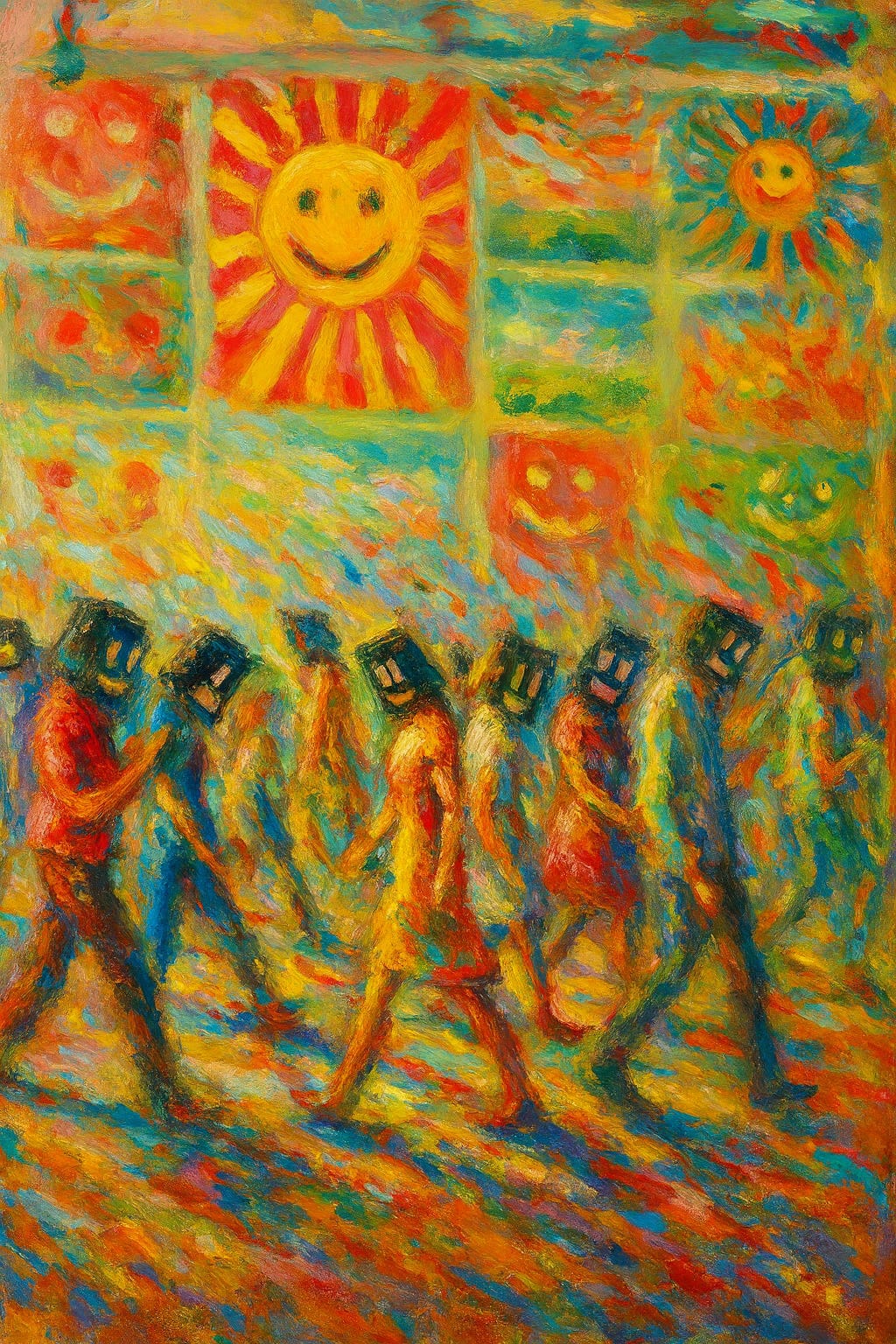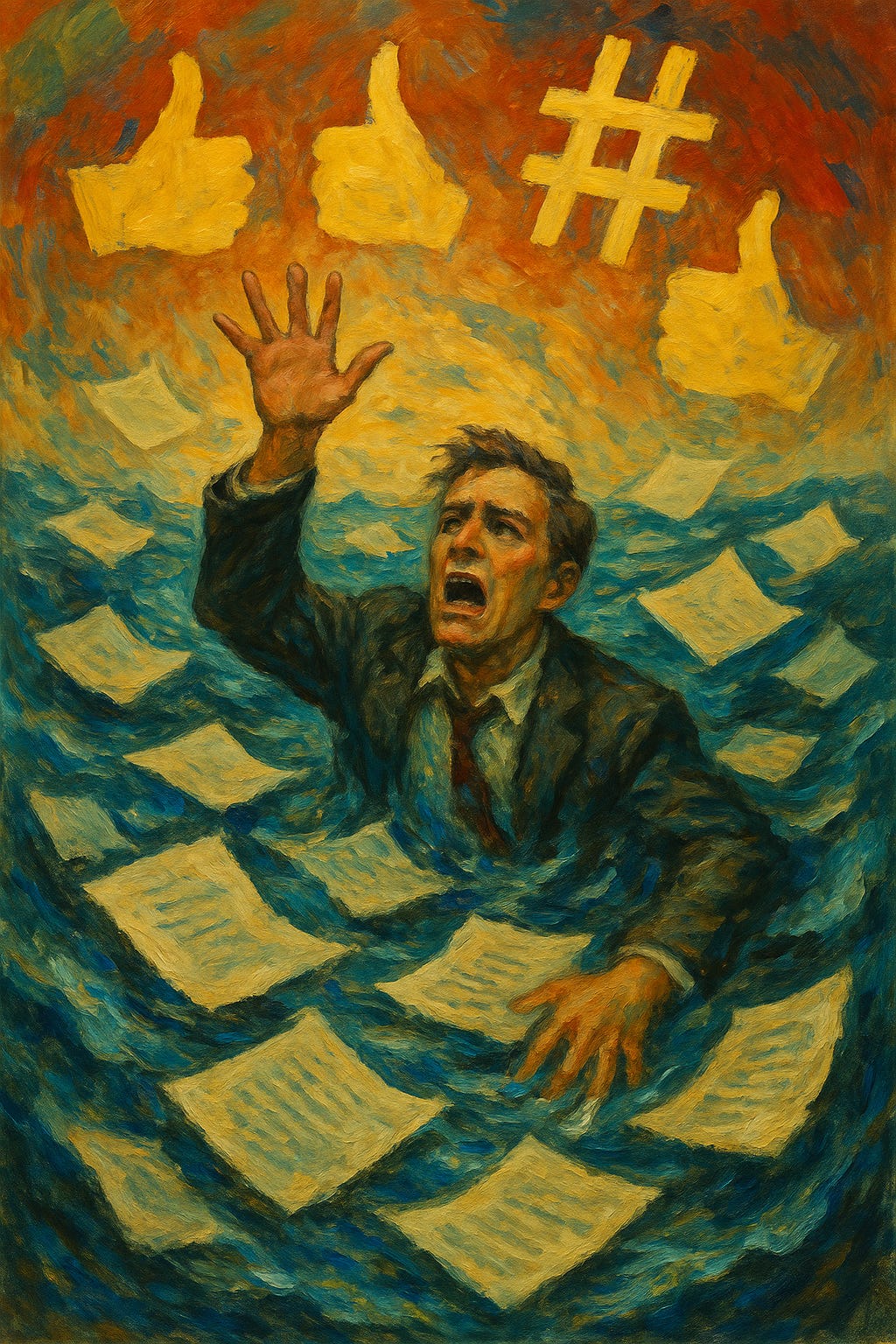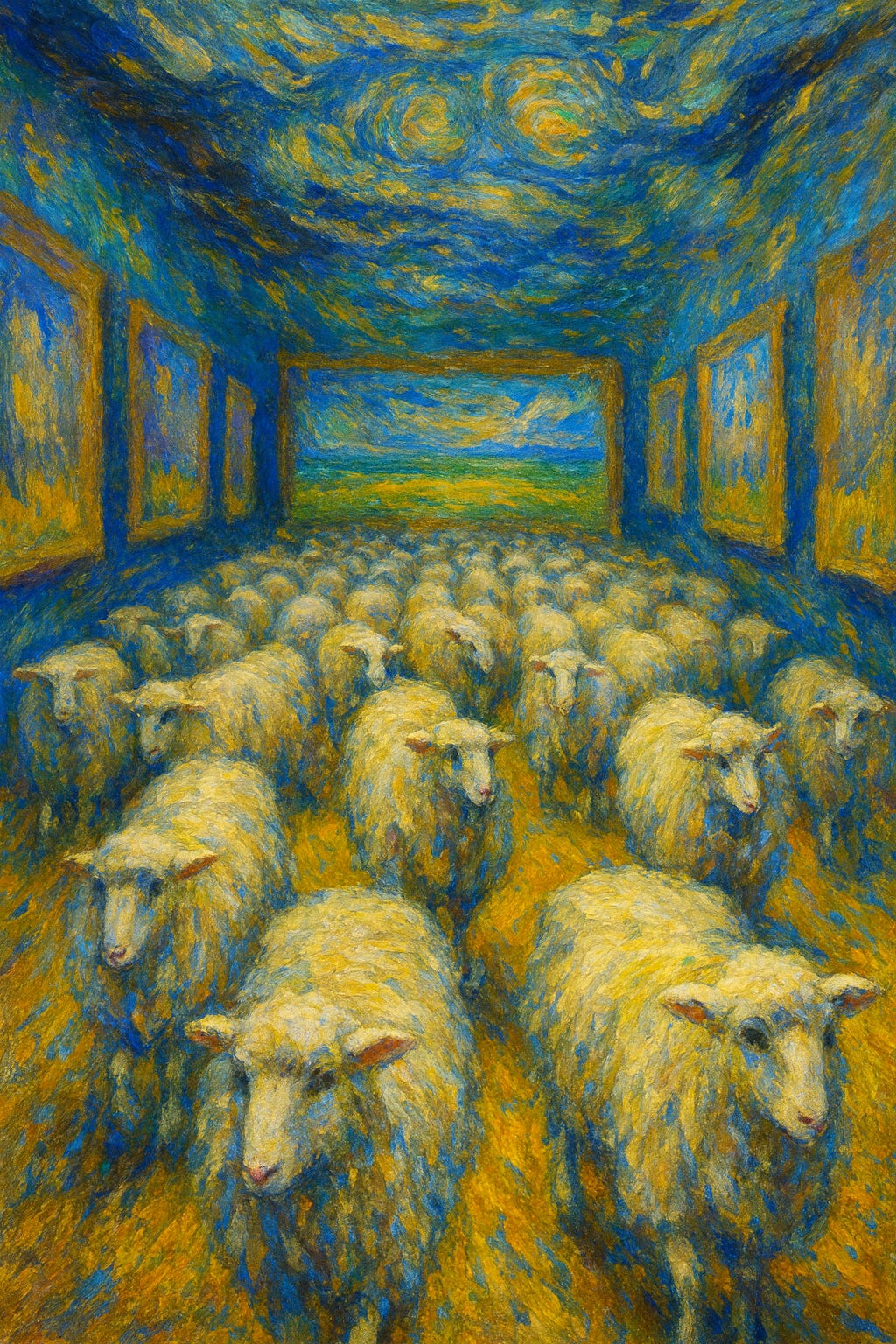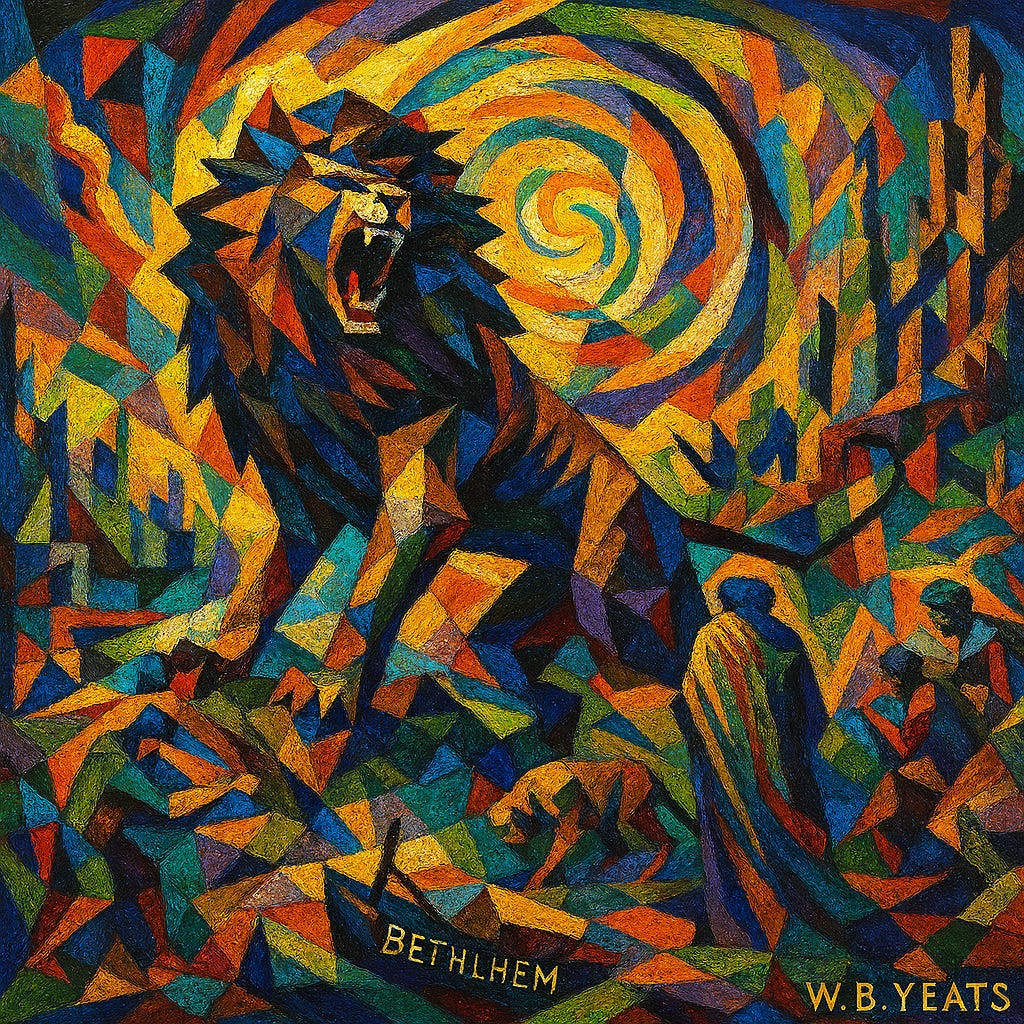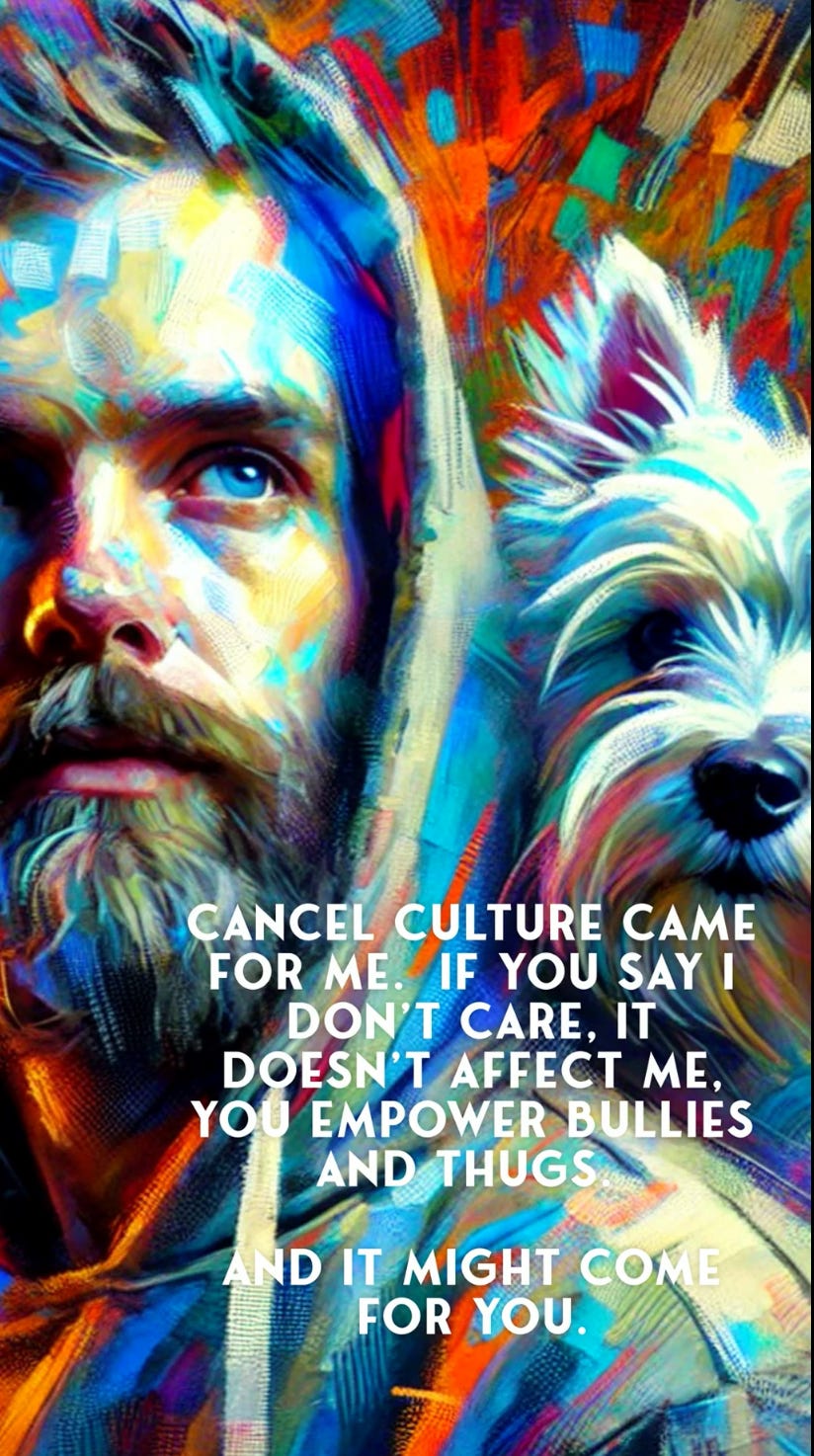The Age of Hollow Virtue
When hashtags replace ethics and outrage masquerades as moral courage
If you believe in the importance of free speech, subscribe to support uncensored, fearless writing—the more people who pay, the more time I can devote to this. Free speech matters. I am a university professor who was fired for criticising Hamas - so I am not speaking from the bleachers.
Please subscribe to receive at least three pieces /essays per week with open comments. It’s $6 per month, less than USD 4. Everyone says, "Hey, it’s just a cup of coffee," but please choose my coffee when you come to the Substack counter. Cheers.
If data were water, we would be drowning in the Mariana Trench, lungs bursting with the brine of Wikipedia footnotes, TED‑Talk aphorisms, and TikTok “life hacks” about boiling an egg. We inhabit a post‑Enlightenment paradise: infinite knowledge, infinite connectivity, infinite outrage.
And yet, somehow, amid this informational Niagara, we behave like a species that has just discovered fire and insists on using it to burn down the library. In an era of infinite information, we have contrived to cultivate infinite stupidity.
“Stupid” here is not insult but diagnosis. We are not merely ignorant—that would be quaint. Ignorance implies an absence of knowledge. Our condition is willful blindness: a deliberate refusal to see, even as we clutch the tools of wisdom. What emerges is not moral progress but moral cosplay—cheap costumes, dramatic poses, no substance.
It is Christopher Hitchens’ despised moralizer reborn in algorithmic form, tweeting pieties while living contradictions.
At the core of this malaise lies a biological quirk: we are wired to crave applause. As social animals, approval operates on us like dopamine pellets on a lab rat.
Social media has industrialized this instinct, turning moral discourse into a Broadway musical of self‑congratulation.
Studies on moral grandstanding—behavioral scientists’ polite term for virtue signaling—show that outrage is less about persuasion and more about prestige.
A 2020 study of 1,776 U.S. adults found that public moral posturing strongly correlates with narcissism and status‑seeking motives, not with genuine ethical concern. In plainer English: people scream their virtues not to help but to be seen helping.
Cognitive laziness feeds this. Real morality is arduous; it requires humility, doubt, and the grit to wrestle with nuance. Why labor over complexity when a hashtag suffices? Virtue signaling is moral fast food: pre‑packaged, pre‑seasoned, and utterly void of nourishment.
Grandstanding research confirms this: people retreat from serious engagement once the applause is secured. You see this in every online pile‑on—outrage expended not to solve but to signal. The words “racist!” or “bigot!” are pressed like vending‑machine buttons, delivering instant validation without a calorie of thought.
Social media, of course, is the perfect Petri dish. Where the medieval church sold indulgences, Instagram sells likes—absolution with a tap.
A Pew‑backed analysis found outrage posts are roughly twice as likely to be shared as balanced ones; algorithms reward fury, not subtlety. Platforms have become digital cathedrals of mandatory piety, complete with inquisitors and public show trials. Hitchens once mocked religion as “celestial North Korea.” Social media is its secular twin: enforced orthodoxy, ritual denunciations, mobs at the ready.
This tribalism—our oldest impulse—has metastasized online. Political affiliation is now less about ideas and more about identity: blue vs. red, woke vs. anti‑woke, progressive chic vs. conservative relic.
Truth is irrelevant; loyalty is all. Sociologists studying moral polarization find that grandstanders tend to hold more extreme views than their peers and are far likelier to vilify outgroups. If your tribe sins, it’s “complicated.” If theirs merely sneezes, it’s Armageddon. The middle ground—where real solutions live—is treated as treason.
Compounding this circus is moral licensing: the ethical hall pass of our age. Perform one symbolic act and you’re absolved. Glue yourself to a highway in protest of carbon emissions, then fly to Bali for “self‑care.”
Post a rainbow filter, then vote against equality. Smartphone‑based research into daily moral behavior found that early acts of virtue increase the likelihood of later lapses—classic moral licensing. We feel good about the salad and promptly devour the cheeseburger.
And beneath it all churns the most perverse twist: self‑hatred marketed as enlightenment. Entire movements now fetishize guilt as virtue, confession as performance.
The West competes in a masochistic tournament: who can loathe themselves most publicly? Healthy self‑critique—once the prelude to reform—has mutated into a lifestyle of paralysis. We apologize for history, for privilege, for breathing; we wallow in shame while the world remains unaltered. It is paralysis sold as progress.
Statistics underscore the tragedy. Moral outrage, wrapped in condemnatory language, travels faster online than truth—confirmed in a 2022 study analyzing 10,000 misinformation cascades during COVID‑19.
Outrage is a viral accelerant; calm correction is social cyanide. Meanwhile, psychological studies confirm that virtue signaling aligns with the “Dark Triad” traits—narcissism, Machiavellianism, psychopathy—traits evolution rewarded for exploitation, not compassion.
And new 2025 research links virtue signaling to attachment anxiety: insecurity, not conviction, drives many to flaunt public morality, particularly around “green” consumption and identity causes.
The result is a morality hollowed out from the inside. We conflate slogans with solutions, hashtags with heroism. We confuse the aesthetics of righteousness with righteousness itself.
Ours is a civilization drowning in data yet starved for wisdom: armed with omniscience, incapable of insight. We flail in the ocean of knowledge, waving for likes as we go under.
The bitter irony is that none of this is inevitable. We could learn to swim—reject applause as currency, rediscover the difficult labor of real ethics. But that would require effort, humility, sacrifice. And who, in this theater of instant approval, wants that? Better to burn the library and Instagram the ashes.
If you found value in this article and wish to support my ongoing work, especially during my 18-month suspension, please consider leaving a tip. Your support helps me continue producing uncensored content on critical issues.



